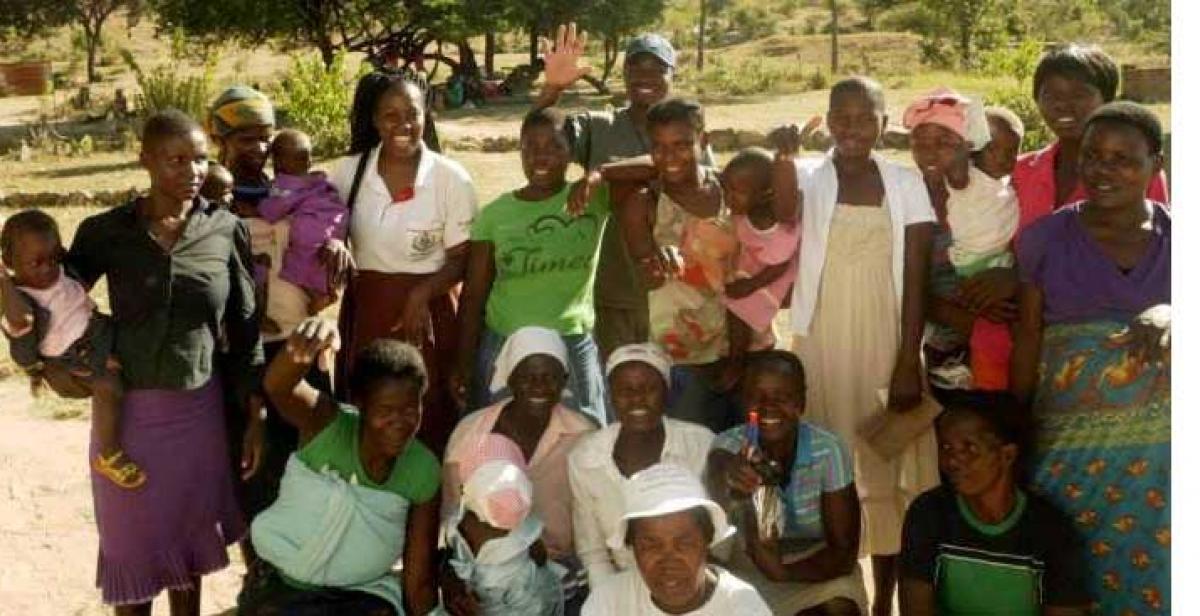Partnered with the Diocese of Mutare Care Cordination Programme (DOMCCP) from July-September 2014, Progressio volunteers have been thoroughly getting involved with communities and fast becoming globally active citizens.
DOMCCP operates in Nyanga and primarily works on HIV and AIDS projects working towards attaining the goal of “Race to Zero HIV deaths”. DOMCCP’s approach to development closely mirrors Progressio’s in utilising a strength based approach, leading a departure from aid dependency and empowering local communities to utilise their strengths and indigenous knowledge to combat local problems. DOMCCP, who have been working on HIV and AIDS for a long period, have come to realise that with anti-retroviral treatment prolonging lives, as well as delivering home based care or access to treatment for people living with HIV and AIDS, focus ought to include finding sustainable solutions geared to ensure that HIV carriers are dependent and self-sustaining post diagnosis. Anti-retroviral treatments are slowly reducing HIV related deaths but with their continued use, the question posed to governments, NGO’s and communities at large, is finding ways to engage people living with HIV and AIDS.
Despite being coded in statute, knowingly infecting someone with HIV and AIDS is a prevalent occurrence in most developing states and, because of victim dependency, such crimes often go unreported as the victim is wholly dependent (financially, social standing, housing, food etc.) on the transgressor. To this end, DOMCCP’s core beneficiaries are women who are, for one reason or another, marginalised from society or living with HIV and AIDS.
Progressio volunteers have been working with these women towards creating pathways to dependency and empowerment. Mainstream sources of finance are non-existent in rural Zimbabwe and for the rare existing ones, access is limited to a certain few. DOMCCP have started capacitating women on creating ‘village banks’ in the form of Savings Internal Lending Communities (SILC) which in a nutshell involves training women into pooling regular funds into one pot and at the end of an agreed timeframe, the monies saved are equally shared amongst SILC group members. This village bank avails women with an opportunity to loan money from the pool, returning it with interest and thereby causing the pool to grow and during the saving time scale these women are being trained on project management and encouraged to consider how to start, maintain, monitor and evaluate projects for sustainability. Across African countries, SILC has proven capable of creating opportunities to be financially dependent and where this occurs gender based violence in a domestic setting is reduced, leading to a more stable family setting for any children in the household. With such an idyllic goal in mind, Progressio volunteers have been also capacitating rural communities and students on rights and responsibilities.
This cycle of volunteers has the added advantage of working with newly formed Rural Women’s Assemblies, a nationwide initiative to pool women together to combat local issues in unison and debating these issues on a nationwide platform and sharing best practices. This is not to say working on the project has not had its own challenges. The nature of development work is intrinsically linked with varying challenges the least of which include adjusting to “Africa time”.
For HIV Support Groups, DOMCCP is leading the forefront against the war on HIV related deaths and is creating platforms for people in remote areas to receive anti-retroviral treatment, educating HIV carriers and ensuring treatment literacy and adherence. Furthermore, DOMCCP is aware that a healthy and balanced diet significantly contributes to a healthier life for HIV carriers and to this end has been working with people living with HIV and AIDS to create nutritional gardens for people living with HIV and AIDS. These nutritional gardens are very popular amongst communities and the proceeds and vegetables are equally shared amongst group members and for the elderly and severely sick members of communities, vegetables are hand delivered to their doors.
Written by Team DOMCCP, ICS volunteers



